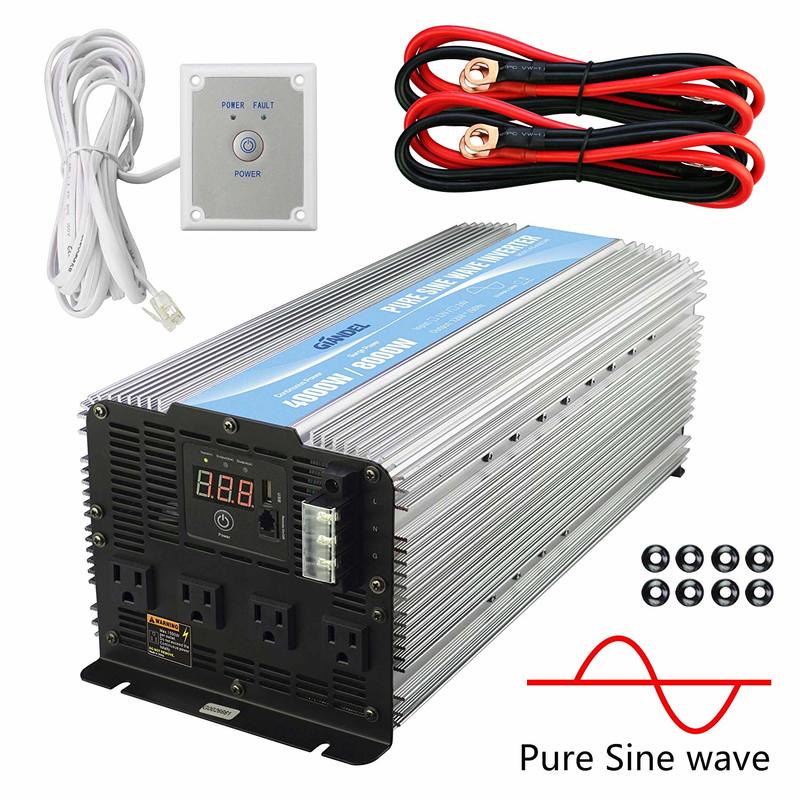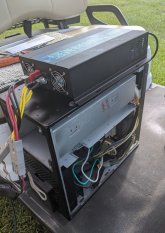AZRoadrunner
New Member
- Joined
- Mar 18, 2021
- Messages
- 83
Hi all -- been lurking on this forum for a while, I have a question about inverters. I'm constructing my own solar generator for use at home -- the purpose is emergency backup power (and occasional use just for the heck of it) which can be rolled around the house. Will also use it to power my ham station once in a while. Using two Battle Born 100VA batteries in parallel for a 12v system, a Victron MPPT 100/20 charge controller, and the solar panels are two 195-watt panels, ground-mounted and angled up. We live in Southern Arizona and our back yard has a direct southern exposure with not a thing to block the sun -- might as well take advantage of it! Anyway -- I have every piece of my system except the inverter and am stuck on stupid trying to figure out what would cause the least amount of disappointment in performance. My ideal inverter would be a Victron Multiplus Compact, but even the "compact" version is quite large and I'm not sure suitable for a roll-around case. Other major brands (i.e. Renogy, AIMS) are getting horrific reviews on Amazon and elsewhere. And Amazon is flooded with a bunch of inverters in the 2kw range that appear to be almost knockoffs of each other -- and they're cheap, but the failure rates seem high and the specs reportedly exaggerated. What are your thoughts based upon my intended uses?





